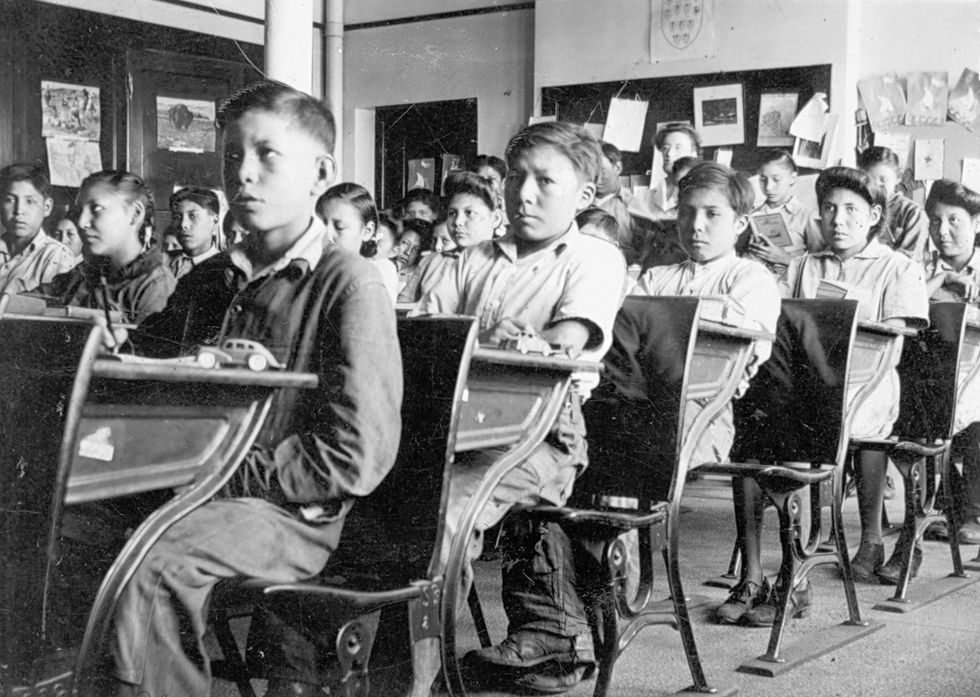Decolonizing academia is a relatively new idea; that academia is at all preferential to a very tailored history is one rarely recognized. In a lengthy op-ed for Teen Vogue, tenth grader Madyson Arscott addresses an all-too-familiar disregard for indigenous history.
He centers on the idea of residential schools, a term admittedly foreign to me. As an indigenous student, however, Arscott was especially interested in how the classroom treated the subject. These residential schools were created to “isolate indigenous children from their families, homes, cultures, and traditions,” and then to “assimilate indigenous children into a European-dominated culture and society.” His research on the schools is damning; many attendees of such schools report abuse and the most blatant of discrimination.
Arscott was surprised to learn that the first Canadian prime minister, Sir John A. Macdonald, was the first to approve these schools. This prompted a vastly universal question: “Why had I always been taught that he was a hero?”
This experience is no different from that of students who learn about Christopher Columbus, amongst other American historical figures. He finds that thirteen public schools in Canada are named after Macdonald, who has been deemed an “architect of genocide,” but is continuously presented in schools as a role model. He acknowledges that some schools have attempted to abandon the use of Macdonald’s name, and emphasizes that "Macdonald played a role in Canada’s foundation, but his actions live on in indigenous pain."
Taking pride in his own indigenous population and their ability to remain resilient, he chose to establish himself on social media (@decolonizeont). Like many modern activists, he demonstrates awareness of how accessible a large platform is today and the fact that accomplishing real change was not something he could do alone.
Arscott writes that decolonizing the entirety of the Canadian school system would be a lengthy process, but that encouraging schools named after Macdonald to change their names would be a monumental step forward. Hand in hand with that action would be a universal effort to change the curriculum accompanying indigenous history. He claims, "indigenous students deserve to know that their history is not extracurricular, and their peers deserve to know the truth behind the foundation of this country."
Like so many others, Arscott looks to see himself and his community represented in mainstream academia. Though he addresses the Canadian school system, his words extend globally. He writes, “This is not a moment or a simple blip in time; this is a movement where we find out where the Canadian population lies on the subject of truth and justice.” Arscott’s words are resonant ones; the need to reckon with our stand on historical truth, and to seek representation on all grounds, is more present than ever.

















